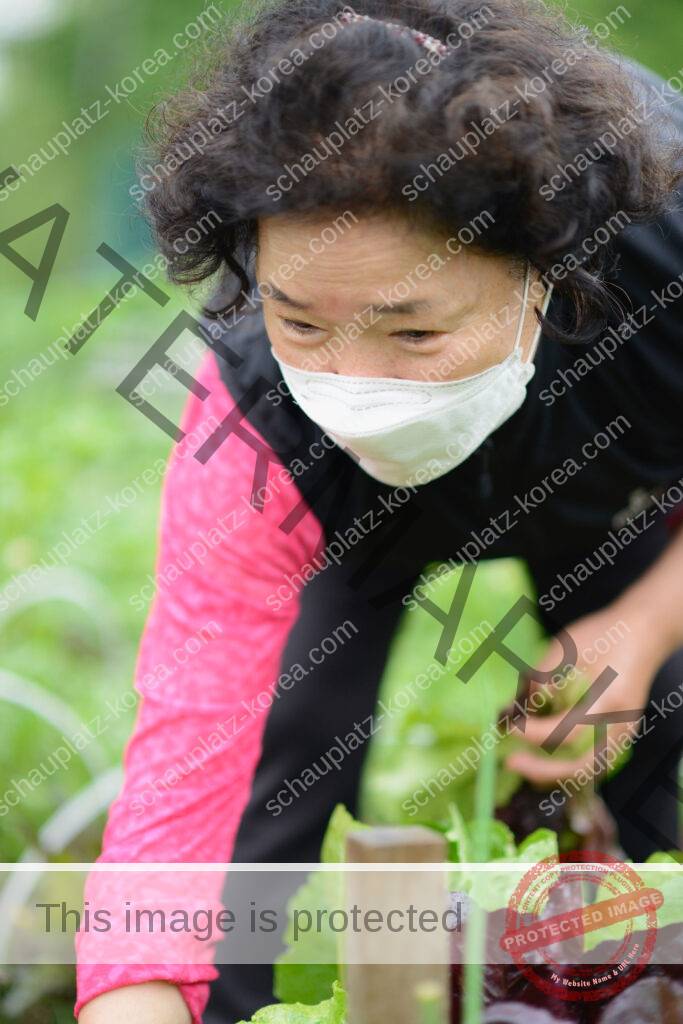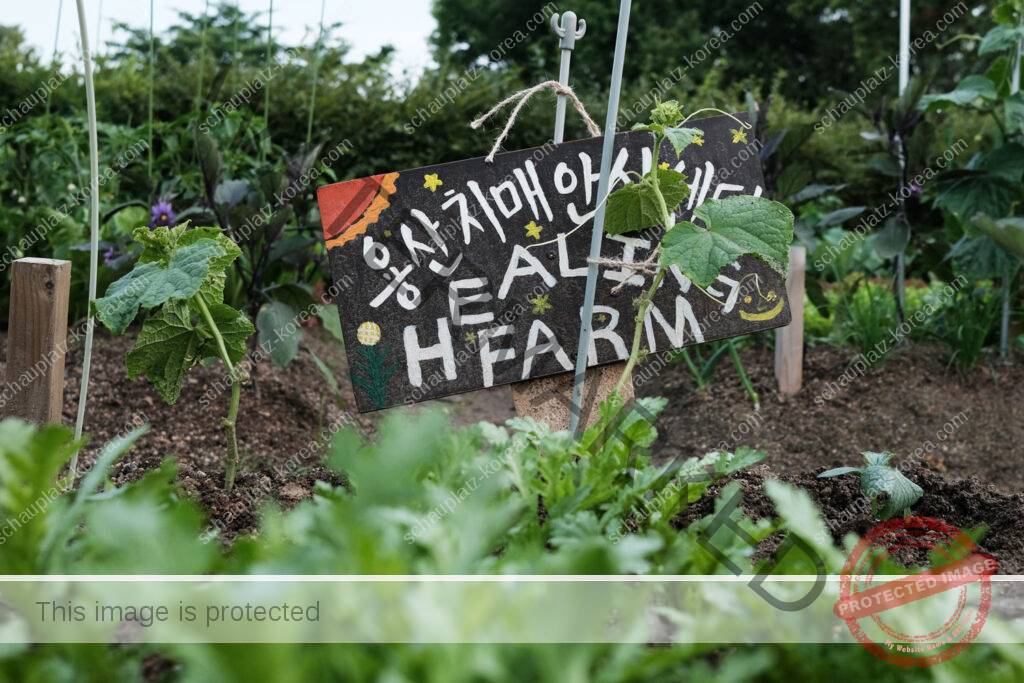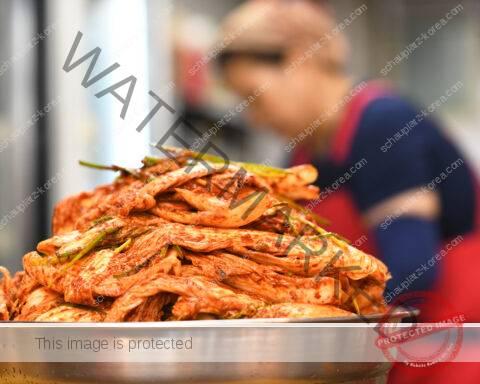The days are getting longer again, the temperatures in the morning hours are pleasantly mild. A good time for hobby gardeners who want to harvest their first vegetables from their own small allotment. The trend of allotment gardening and urban gardening has also arrived in Korea. Those who want to rent their own small allotment garden in Seoul are first on a long waiting list. Because the longing for a little green is huge in Seoul.
For Daniel, an allotment garden was only a wish until now. He too applied for one of these coveted “little gardens” in Yongsan Family Park in Seoul. But unfortunately, without success.
On his daily walk, Daniel sometimes stops by the garden beds, marvels at the growing vegetables, and chats with the people who spend their free time there. In the process, he has already heard one or two interesting stories. I became curious and also want to learn more about these people. Spontaneously, I meet Jinsook Jeon 전진숙 at Yongsan Family Park for an interview.
When do you really start “gardening”?
Seeding usually starts in February or March, depending on the type of plants and vegetables. In Korea, lettuces, young radish, and crown daisies are planted in late April into May. When the weather gets warmer, we can already harvest the first lettuce. After that, we plant new vegetables.

Why do you run an allotment garden?
I grew up in the countryside, so I could often watch my parents farming. At that time, however, gardening didn’t interest me much. As an adult, however, I soon realized many positive things about gardening. First, it’s very relaxing, then your own vegetables just taste so much better, and because you’ve grown them yourself, there’s a new appreciation for food. In summary: Gardening makes me happy.
Gardening makes me happy.
Jinsook Jeon
How are you organized?
Here at Yongsan Family Park, we get expert technical support. Courses are offered to learn how to protect plants and vegetables from pests in a natural way or how to make natural fertilizer. These are actively attended, especially by beginners who are growing their own small garden for the first time. The community here is very well organized. We each receive gardening tips and announcements of new gardening classes via Band (the South Korean messenger app).

Seoul is actually a green, hilly city. There are parks, lots of forest and mountains. However, I have seen very few family gardens so far. Why is that?
There are still very few family gardens in Seoul. In our district Yongsan-gu, to which Yongsan Family Park belongs, there is only this one city garden with 150 units. These are embedded in the park, between a small lake and a lot of greenery. The unit of one garden section consists of an area of two pyeong (which is about 6.61m2). Family gardens in Seoul are very trendy. The demand is very high. Therefore, it is becoming increasingly difficult to obtain a lease for one year. The waiting list is long. You need a lot of luck.
What kind of people do you meet in the allotment gardens?
Often, they are people who have already had experience with agriculture in their youth. But there are also many families with children who want to experience and learn about nature directly. From housewives to former ROK admirals (Republic of Korea Navy)… a diverse society is interested in gardening.

Looking around, I see a wide range of products being planted. This ranges from simple salads to watermelons. What have you planted this year?
Various lettuces, cucumbers, chili peppers, green onions, eggplants, and daisies. I would love to plant more diverse vegetables, but space is very limited.
Scissors are an important tool you use when gardening. For what exactly?
When we harvest lettuce, for example, we only cut off individual leaves, from the outside towards the inside. This way we harvest only just as much as we need. And the plant can then continue to develop. In addition, we also value tidiness and appearance when gardening.

The trend of the sharing economy has also arrived in the allotment garden. How are you organized?
The agricultural equipment, such as spades, hoes, and watering cans, are provided by Yongsan Family Park. Likewise, we receive technical support and guidance from this organization.

The harvest can sometimes be very abundant. Can you utilize all of it on your own or will some of it be sold?
The area is too small for a sale. I have also planted various types of vegetables. I then share the harvest mostly with my family and friends. I wish I could distribute more of my harvest.
In the allotment garden there are also animals from time to time that are not welcome. I’m thinking of snails and insects. How do you deal with them?
At Yongsan Family Park, it is not allowed to use chemical fertilizers and pesticides. Therefore, everyone learns how to deal with pests in a course. I, for example, use eggshells. The preparation is somewhat laborious but very effective. The eggshells are fried at a high temperature. When they are golden brown and crack, I add vinegar. The mixture is diluted with water, in a ratio of 100:1, and stored for about ten days. This natural insecticide is also good because it contains a lot of calcium. I made four liters of its last fall. However, there is also a way to make insecticide with water and soju….

Now we can only hope that Daniel will be a little luckier next year and will be able to grow his own allotment. The seeds for celeriac, fennel, and rhubarb, which he received from Switzerland, are ready for sowing…





